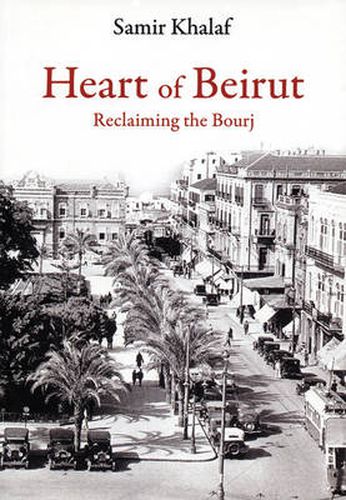Readings Newsletter
Become a Readings Member to make your shopping experience even easier.
Sign in or sign up for free!
You’re not far away from qualifying for FREE standard shipping within Australia
You’ve qualified for FREE standard shipping within Australia
The cart is loading…






At the centre of Beirut lies the Bourj, one of the world’s great public squares, as well as one of the most durable. The square is an ‘open museum of the world’s civilisations’, resonating with influences from ancient Phoenicia to modern France and beyond. The heart of a ‘merchant republic’, its receptivity to foreign cultures and beliefs meant that traders of different backgrounds assisted each other in private ventures; a sense of solidarity arose that carried over into times of need. During the Lebanese civil war from 1975-90, this pleasant, vibrant entertainment district, transport hub and melting-pot of cultures was riven by the notorious ‘Green Line’ that divided the city into warring factions. Israeli air raids in successive years worsened the damage, sinking the Bourj further to the status of a ‘no-man’s land’. Samir Khalaf, a Beirut resident and an internationally acclaimed sociologist, is an ardent admirer of the Bourj’s cosmopolitan history and argues passionately that its reinvention is at hand, and must be encouraged: the Bourj must reclaim its disinherited legacy of pluralism and tolerance.
$9.00 standard shipping within Australia
FREE standard shipping within Australia for orders over $100.00
Express & International shipping calculated at checkout
At the centre of Beirut lies the Bourj, one of the world’s great public squares, as well as one of the most durable. The square is an ‘open museum of the world’s civilisations’, resonating with influences from ancient Phoenicia to modern France and beyond. The heart of a ‘merchant republic’, its receptivity to foreign cultures and beliefs meant that traders of different backgrounds assisted each other in private ventures; a sense of solidarity arose that carried over into times of need. During the Lebanese civil war from 1975-90, this pleasant, vibrant entertainment district, transport hub and melting-pot of cultures was riven by the notorious ‘Green Line’ that divided the city into warring factions. Israeli air raids in successive years worsened the damage, sinking the Bourj further to the status of a ‘no-man’s land’. Samir Khalaf, a Beirut resident and an internationally acclaimed sociologist, is an ardent admirer of the Bourj’s cosmopolitan history and argues passionately that its reinvention is at hand, and must be encouraged: the Bourj must reclaim its disinherited legacy of pluralism and tolerance.